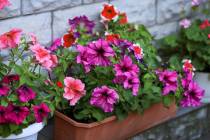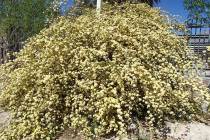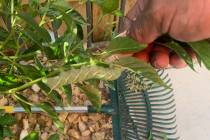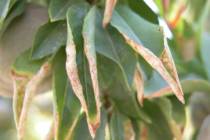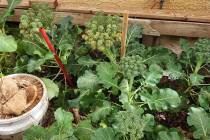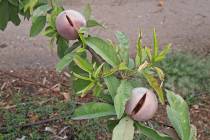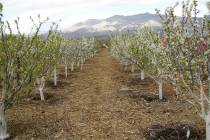Landscape calendar a great way to plot maintenance activity
Yes, scouting is a great thing, especially in the landscape. I am referring to a different type of scouting than the ones sanctioned for boys and girls. This form of scouting is just as important, but it helps us keep our trees and shrubs healthy all year long.
Scouting is a term that comes from agriculture. Teams of trained professionals are hired to walk the fields on behalf of the farmers to check for insect, disease and weed infestations. If something important is spotted, a report is documented and the farmer can respond rapidly with the appropriate cultural or alternative practice. Valuable crops are protected from potential devastation.
Homeowners can conduct a weekly walk-about and do just the same — protect their valuable landscape. Savvy gardeners practice scouting techniques frequently. I know of one lady who strolls through her garden every morning, coffee in hand, and often in her bathrobe. This is a bit extreme, but weekly spot checks certainly help in picking up potential problems.
Area Extension Specialist M.L. Robinson indicates that scouting is an important component of integrated pest management. He feels that scouting your landscape is a good way to better know your trees and shrubs. He stresses that it must be a part of a regular schedule followed regardless of need or weather conditions.
Robinson tells me that the Nevada Cooperative Extension Service receives approximately 5,000 phone calls and nearly that many e-mails each year from people seeking advice on their landscape. Trained master gardeners answer the calls and assist residents by guiding them through the process of figuring out the problem and then how to solve it.
Robinson emphasized the importance of properly identifying pests, beneficial insects and pathogens (disease-causing agents). Incorrect identification can lead to an inaccurate diagnosis, which then prompts incorrect treatments. Too often people rely upon pesticides to counter the problem. Robinson strongly recommends that homeowners should seek every alternative to spraying.
One of the best ways to assist your scouting program is through good record keeping. Every gardener should keep a journal to document when the irrigation program was (and should be) modified. It should contain all fertilizer and pesticide applications and, if possible, the result of those activities. Keep notes on successes and failures in the vegetable garden. Document when the fruit trees bloomed, and when the fruit was ripe. Good record keeping will allow you to “predict” when those pesky hornworms will show up in the tomato patch. Pick up one of those inexpensive spiral-bound tablets and hang it from a string near the irrigation controller or on your potting bench. Make notations with the date included after each walk-about. Not into diaries? Then just use a small wall calendar to plot your activity.
Another important part of scouting is knowing when to surrender. Not on the whole landscape, but on individual plants. It is not that uncommon for a plant to be planted in the wrong spot. Having too much sun or shade, too wet or too dry soil conditions, or just not enough room can make life miserable for a plant. Know when to consider a move, especially before it is too late. The only way to know this is by being observant.
Robinson comments that scouting the landscape can save money, time, chemicals and energy while protecting the environment. Your trees, shrubs and lawn will likely be healthier as a result.
For more information on the University of Nevada Cooperative Extension, call 221-3130 or visit the Web site www.unce.unr.edu/.
Consulting Arborists, Swartzell has been helping Southern Nevadans with their gardening questions for 25 years. If you have a question about a particular plant, or a general gardening issue, send them to Swartzell at treemender@cox.net.









